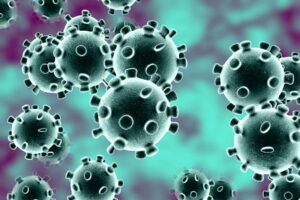NAD+ is a crucial part of the immune system. COVID depletes your NAD+. The body needs the time and materials necessary to replenish NAD+. Included in the elements you need are Vitamins C, B3 (Niacin), D, Quercetin, Zinc, and Selenium.
In their paper, COVID-19: NAD+ deficiency, Robert Miller and Ade Wentzel explain the role of NAD+ in the severity of COVID-19 symptoms and the cause.
I asked Robert Miller:
Have you given any thought to Vitamin K and NAD+?
My father died in February. We didn’t know it at the time, but later figured out he died of COVID. (COVID testing and diagnosis hadn’t arrived to America, yet.) He had an upper respiratory illness for three weeks. My father was also on blood thinners. We worked with his doctor on a daily basis. Because his INR blood test level was spiking, we started testing every day and eventual stopped the blood thinner medication. Nevertheless, his INR kept climbing. His doctor prescribed the antidote, Vitamin K. The next day my father went into crisis. His heart became irregular, he couldn’t get oxygen to his brain, and was put on a ventilator The next day he was removed from life support and died.
All of this makes me wonder about the role of Vitamin K and COVID?
Robert replied, “Vitamin K metabolism depends on NAD(P)H being available. So, basically it’s back to NAD+; meaning low NAD+ will result in low K2 metabolism.”
“NQO1 [NAD(P)H quinone oxidoreductase 1; also known as DT-diaphorase] is a cytosolic enzyme that catalyses the two-electron reduction of various quinones including vitamin K. The enzyme may play a role in vitamin K metabolism by reducing vitamin K to vitamin K hydroquinone for utilization in the post-translational γ-glutamyl carboxylation reactions required by several proteins involved in blood coagulation.” — Assessment of the contribution of NAD(P)H-dependent quinone oxidoreductase 1 (NQO1) to the reduction of vitamin K
